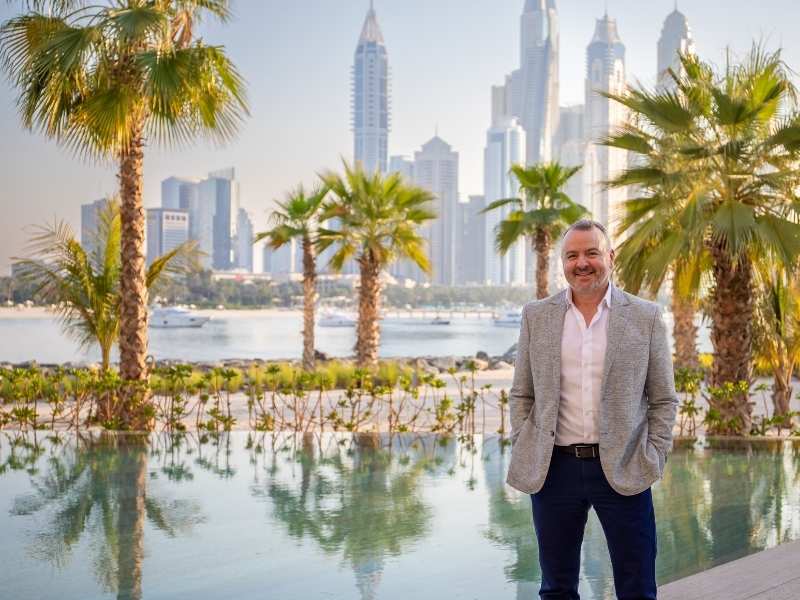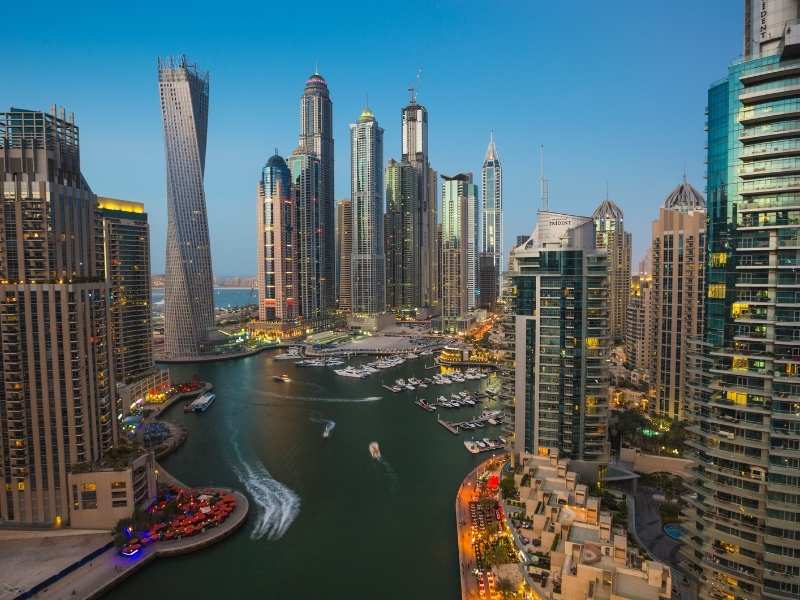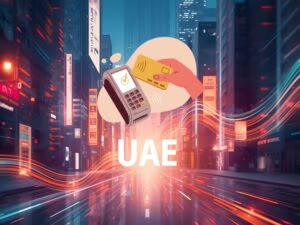There’s a growing conversation among the world’s ultra-wealthy, and it keeps leading back to one place – Dubai. Mark Phoenix, CEO of Sankari, shares insights with The Finance 360, saying, “Over the past year, I’ve witnessed a remarkable shift in how high-net-worth individuals are treating real estate not just as an asset class, but as a fortress. Capital preservation is the new luxury, and no city embodies that mindset more clearly in 2025 than Dubai.”
“As someone who works closely with global investors, I can confidently say, Dubai has earned its place as the world’s top safe haven for those looking to shield and strategically grow their wealth,” he adds.

An Influx of Capital and People
This year, the UAE is set to welcome nearly 10,000 new millionaires, more than any other country, according to the 2025 Henley Private Wealth Migration Report. “These aren’t just transient investors; they’re relocating families, moving entire portfolios, and establishing long-term roots,” explains Mark.
Dubai’s unique positioning as a zero-income tax jurisdiction, combined with no capital gains or inheritance tax, makes it more than attractive; it’s rational. The city doesn’t punish wealth creation as it nurtures it. With the expansion of the 10-year Golden Visa, tied directly to premium real estate investments, Dubai has made it seamless for investors to obtain residency without bureaucratic complexity.
Real Estate That Works Like a Bank Vault
According to Phoenix, ultra-prime property in Dubai continues to outperform expectations. Areas like Palm Jumeirah, Emirates Hills, Marasi Drive and Downtown Dubai are seeing record-breaking deals, including transactions north of $100 million. Despite this, Dubai remains relatively affordable compared to other global cities, offering better yields and higher quality per square foot.
According to Knight Frank’s 2025 Private Capital Report, the number of $10 million-plus home sales in Dubai has surged, fueled by private capital migration and constrained supply. With luxury inventory tightening and developers racing to meet demand, the dynamic is clear: scarcity drives value: “This isn’t speculation, it’s structural demand.”
Diversification Beyond Residential
“What I find particularly exciting is the growing sophistication in how wealth is being allocated within Dubai’s property sector. Investors are looking beyond villas and penthouses. They’re targeting branded residences, land banking, healthcare infrastructure, and smart commercial assets that align with the UAE’s AI, sustainability, and fintech ambitions. ESG compliance, smart home integration, and net-zero carbon alignment are no longer fringe considerations; they’re expected. Dubai isn’t just catching up with global trends; it’s setting them,” Phoenix further adds.
Meanwhile, Dubai has secured its position as one of the safest cities globally in 2025, according to the Numbeo Safety Index, which awarded the emirate a city safety score of 83.9, placing it firmly within the world’s top five. At the national level, the UAE was ranked the safest country in the world, with Dubai, Abu Dhabi, and Sharjah leading regional safety benchmarks.
This elevated safety ranking is proving to be a key factor in attracting ultra-high-net-worth individuals and families relocating from cities facing rising crime rates, political instability, or tax uncertainty. Experts note that personal and financial security remains a top priority for global investors considering relocation.
Dubai’s reputation for safety is underpinned by a sophisticated and tech-driven law enforcement ecosystem. The Dubai Police Force utilizes AI-powered surveillance, predictive crime analytics, and maintains one of the fastest emergency response times in the world, averaging under three minutes.
The emirate has also implemented a network of Smart Police Stations and operates within a transparent legal framework, enhancing residents’ trust in local governance and public infrastructure. These advancements have played a critical role in reinforcing Dubai’s appeal as a global hub for business, investment, and luxury living.
“The city has carefully positioned itself as a hub where investors can feel confident in the stability of their capital, the strength of governance, and the long-term viability of their investments. For the ultra-wealthy looking to preserve and grow their wealth in a future-facing, globally connected, and economically intelligent environment, Dubai isn’t just a safe haven, it’s a strategic imperative,” Mark concludes.






